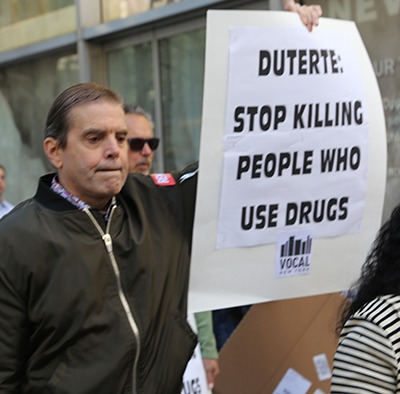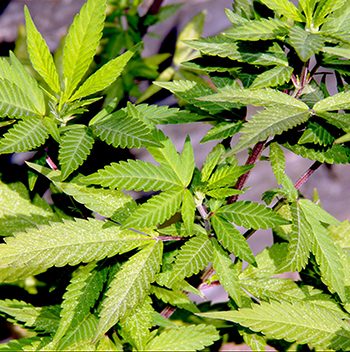By treating drug use with compassion, evidence-based policies, and harm reduction strategies, societies can reduce overdose deaths, dismantle the stigma surrounding addiction, and address the psychological toll of criminalization.
For decades, the “war on drugs” has marched on like a particularly stubborn bureaucrat, armed with nothing but bad ideas and an inflated sense of authority. Its strategy? Throw people in prison for using substances, then act surprised when addiction rates don’t drop, communities crumble, and the prison-industrial complex thrives. The definition of insanity is doing the same thing over and over and expecting different results. The current drug policy is insane.
The war on drugs has failed. Not in some abstract, “could’ve-gone-better” kind of way, but in a catastrophic, multi-generational trainwreck sort of way. It hasn’t reduced drug use. It hasn’t made communities safer. What it has done is fill prisons, fuel systemic racism, and fund criminal cartels.
The logic behind criminalization was always shaky. The idea was that if the consequences were harsh enough—long prison sentences, public shaming, mandatory “Just Say No” assemblies in school gyms—people would simply stop using drugs. This, of course, ignores the inconvenient fact that human behavior doesn’t work like that. Addiction isn’t a moral failing or a simple matter of bad choices. It’s a complex interplay of genetics, environment, trauma, and mental health. You can’t punish someone out of an addiction any more than you can incarcerate someone into not having diabetes.
The psychological impact of criminalization is devastating. Imagine struggling with substance abuse—already isolating, stigmatizing, and fraught with shame—only to have the added bonus of being labeled a criminal. This doesn’t motivate people to seek help; it drives them deeper into the shadows. Fear of arrest keeps people from accessing medical care, support networks, and harm reduction services.
Portugal figured this out over two decades ago. In 2001, facing a national crisis of drug-related deaths, HIV infections, and rampant addiction, they tried something radical: they decriminalized all drugs. Not legalized—decriminalized. This means if you’re caught with drugs for personal use, you don’t get handcuffed and thrown into a cell. Instead, you meet with a panel of health professionals who assess your situation and connect you with resources if needed. The result? Overdose deaths plummeted, HIV rates dropped, and drug-related crime decreased. Turns out treating people like humans works better than treating them like statistics in a crime report.
Contrasting outcomes of drug decriminalization in Oregon and Portugal highlight the critical importance of comprehensive implementation and patience in policy reform. Portugal’s success is attributed to a holistic approach that reclassified drug possession as a public health issue and invested in robust treatment and harm reduction services. In contrast, Oregon’s recent repeal of its decriminalization law after just three years underscores the challenges of insufficient support systems and the need for sustained commitment. Decriminalization alone is insufficient without the necessary infrastructure and societal support to address addiction effectively.
Decriminalization isn’t about ignoring the risks of drug use. It’s about responding with strategies that actually work. Harm reduction approaches—like needle exchange programs, supervised consumption sites, and access to naloxone—save lives. These interventions don’t “enable” drug use; they reduce the harms associated with it. People will use drugs whether you like it or not. The choice isn’t between a drug-free world and a permissive one. The choice is whether drug use will lead to unnecessary death, disease, and incarceration.
Critics often claim that decriminalization sends the “wrong message.” But what message is criminalization sending? That people struggling with addiction deserve punishment, not support? That public health issues should be addressed with handcuffs? The “wrong message” has been broadcast loud and clear for decades, and it’s written in the obituaries of those who died because they were too afraid to seek help.
You can’t discuss drug policy without acknowledging its role in perpetuating systemic racism. In the U.S., Black and white people use drugs at similar rates, but Black individuals are significantly more likely to be arrested and incarcerated for drug offenses. The war on drugs didn’t just target substances; it targeted communities. Decriminalization is also a racial justice issue.
Billions of dollars are spent annually on policing, court proceedings, and incarceration related to drug offenses. This is money that could be invested in treatment programs, mental health services, education, and community development—things that actually reduce drug-related harm instead of just managing its symptoms.
The psychological effects of criminalization ripple far beyond individuals with drug charges. Families are torn apart by incarceration. Children grow up with the trauma of having a parent in prison. Entire communities are destabilized, creating cycles of poverty, disenfranchisement, and hopelessness. And hopelessness is a great fertilizer for addiction.
Contrast this with the psychological benefits of decriminalization. When people aren’t treated as criminals, they’re more likely to seek help, engage with support networks, and maintain hope for recovery. Decriminalization reduces stigma, making it easier to talk openly about substance use and mental health. It fosters connection rather than isolation, which is one of the most powerful protective factors against addiction.
Globally, we’re seeing shifts. In addition to Portugal, countries like Switzerland, the Netherlands, and Canada have adopted harm reduction and decriminalization strategies with positive outcomes. Supervised injection sites in Vancouver have saved countless lives, reduced public drug use, and connected people with treatment services. Meanwhile, countries that double down on punitive approaches—like the Philippines—see skyrocketing human rights abuses without any meaningful reduction in drug-related problems.
Decriminalization also opens the door for evidence-based drug education. Instead of fear-mongering we can teach people about substances in a factual, nuanced way. Understanding the risks and effects of drugs encourages informed decisions. It’s the difference between abstinence-only sex ed (ineffective) and comprehensive sex ed (effective). Knowledge isn’t dangerous—ignorance is.
Of course, decriminalization isn’t a magic bullet. Addiction doesn’t exist in a vacuum. It’s often rooted in trauma, poverty, and lack of connection. Addressing these underlying issues reduces drug-related harm more effectively than any law ever could. It needs to be part of a broader strategy that includes access to healthcare, mental health support, affordable housing, and economic opportunities. And because decriminalization does not create a legal, regulated market for drugs, cartels would still control production and distribution, keeping their violent empires unfortunately intact.
Decriminalization alone doesn’t fix the damage done by decades of punitive policies. We need to expunge records, release non-violent drug offenders, and invest in communities devastated by the war on drugs. Reparative justice isn’t just about fairness; it’s about acknowledging the real human cost of bad policy.
There’s an existential dimension to all this. The criminalization of drug use reflects a deeper discomfort with vulnerability, loss of control, and altered states of consciousness. We fear what we don’t understand, and rather than confronting that fear, we legislate against it. But discomfort isn’t a justification for injustice. If anything, it’s a sign that we need to lean in, ask questions, and build systems rooted in compassion rather than fear.
Decriminalization is about recognizing our shared humanity. People use drugs for many reasons: pain relief, escape, curiosity, ritual, rebellion, self-medication, or simple pleasure. None of these reasons warrant a prison sentence. None justify the societal harm inflicted by criminalization. We can choose a different path—one that sees people not as problems to be solved, but as lives to be valued.
Therefore, under Folklaw:
Drug use shall be decriminalized, shifting from punitive responses to public health-centered approaches. No individual shall be criminally prosecuted for the personal use or possession of drugs. Resources will be redirected from law enforcement to evidence-based harm reduction programs, mental health services, and addiction treatment.
Past convictions for non-violent drug offenses will be expunged, and individuals incarcerated for such offenses will be released. Education campaigns will promote accurate, stigma-free information about substance use.
Policies will prioritize racial and social equity, addressing the disproportionate impact of drug criminalization on marginalized communities. Addiction will be treated as a health issue, not a crime.






Discussions
There are no discussions yet.